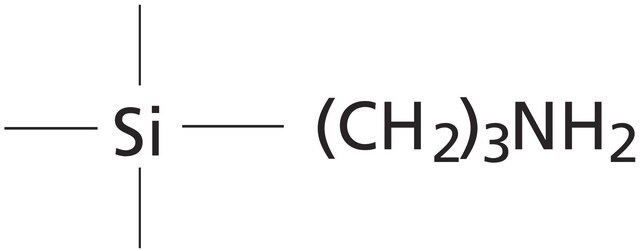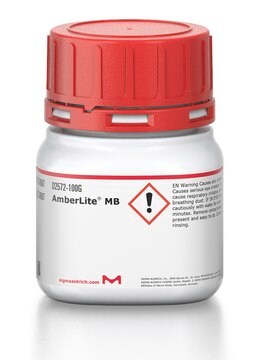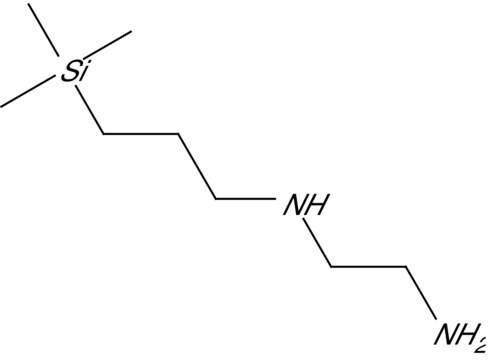57221-U
Envase a granel Discovery® DSC-SCX SPE
pkg of 100 g
About This Item
Productos recomendados
packaging
pkg of 100 g
technique(s)
solid phase extraction (SPE): suitable
matrix active group
sulfonic acid bonding
application(s)
food and beverages
separation technique
ion exchange
General description
Sample Matrix Compatibility: Organic or aqueous solutions
- A polymerically bonded, benzene sulfonic acid functional group, pKa (< 1.0)
- Counter ion is H+
- Silica support allows for use with very organic solvents (no shrinking/swelling)
- Excellent capacity (0.8 meq/g) for cleaning up solution phase combinatorial chemistry reactions (removing target molecules from reaction by-products and excess reagents)
- The presence of the benzene ring offers some mixed-mode capabilities (hydrophobic interactions) that should be considered when extracting cations from aqueous matrices
Legal Information
signalword
Danger
hcodes
Hazard Classifications
Aquatic Chronic 3 - Eye Dam. 1 - Skin Corr. 1A - Skin Sens. 1
Storage Class
8A - Combustible corrosive hazardous materials
wgk_germany
WGK 3
flash_point_f
Not applicable
flash_point_c
Not applicable
Elija entre una de las versiones más recientes:
¿Ya tiene este producto?
Encuentre la documentación para los productos que ha comprado recientemente en la Biblioteca de documentos.
Los clientes también vieron
Artículos
SPE retention mechanism in this case is based on the electrostatic attraction of charged functional groups of the analyte(s) to oppositely charged functional groups on the sorbent.
Protocolos
Melamine was extracted from milk using Supelco® Discovery® DSC-SCX SPE tubes. Analysis was performed by HPLC, using an Ascentis® Express HILIC column.
Retention occurs through polar interaction between the sorbent and analytes. Typical sample matrices that can be employed in normal-phase SPE include hydrocarbon or fatty oils diluted in a solvent like hexane, isooctane, chlorinated solvent, THF, diethyl ether, or ethyl acetate.
Nuestro equipo de científicos tiene experiencia en todas las áreas de investigación: Ciencias de la vida, Ciencia de los materiales, Síntesis química, Cromatografía, Analítica y muchas otras.
Póngase en contacto con el Servicio técnico








